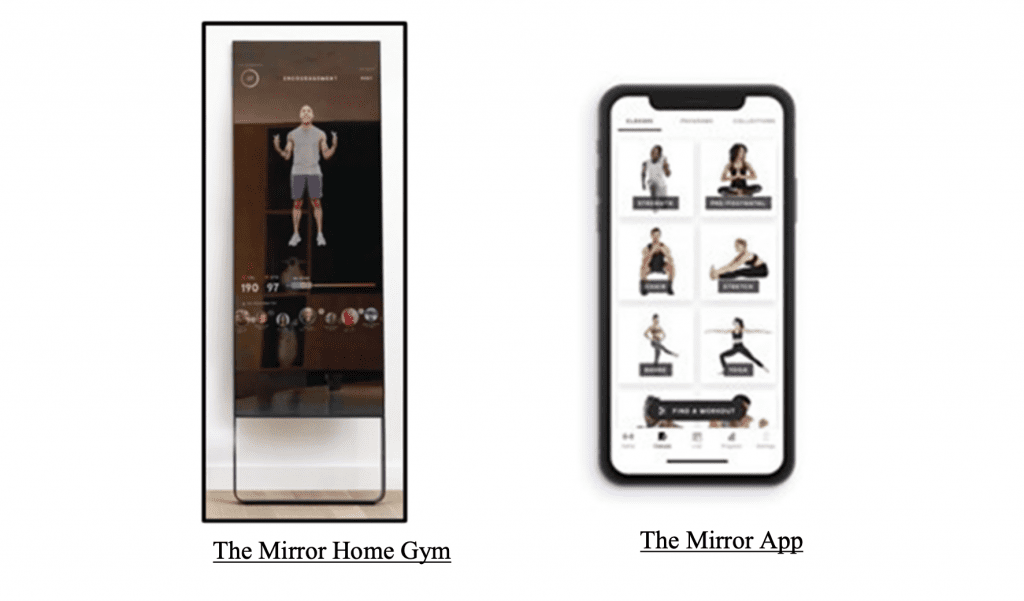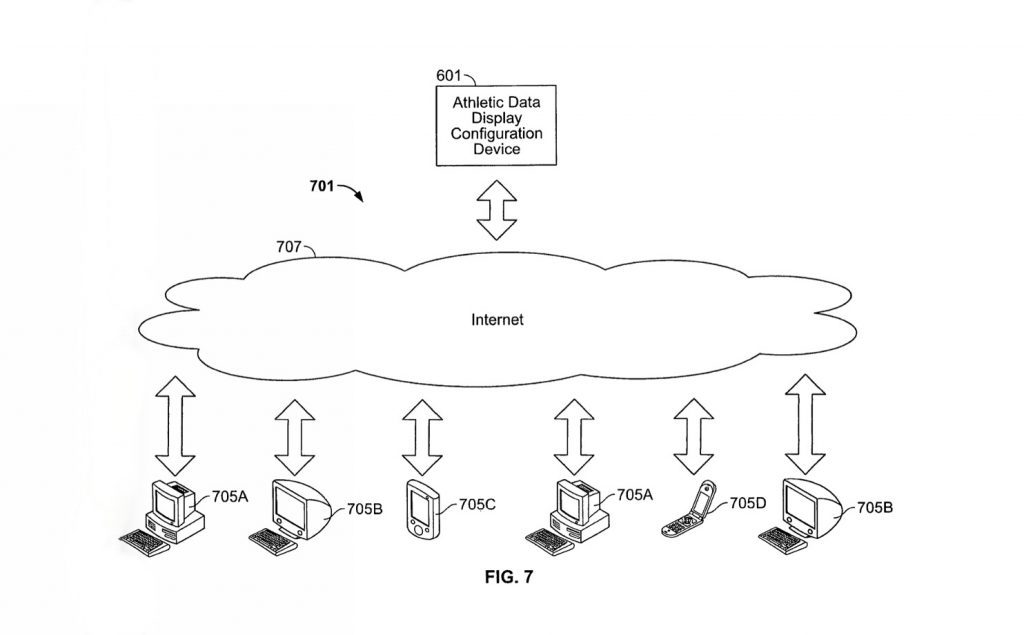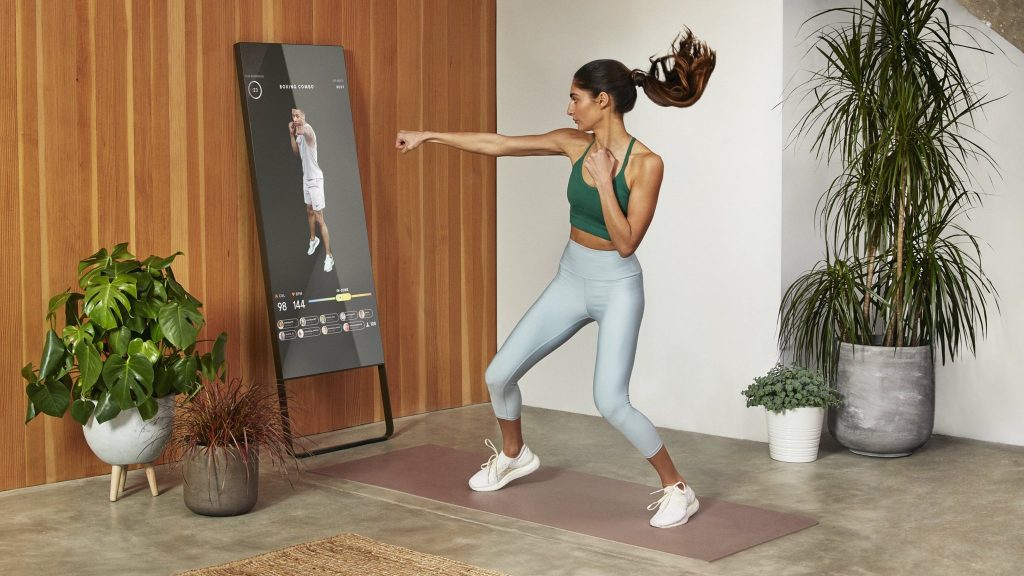“Nike has spent decades creating game-changing digital sport technologies,” the Beaverton, Oregon-based sportswear titan stated in a new lawsuit, with such efforts resulting in “a robust portfolio of patents” that protect these innovations, at least a few of which are allegedly being infringed by rival Lululemon via its Mirror Home Gym and accompanying mobile applications. According to the complaint that it filed in a New York federal court on Wednesday, Nike claims that the Lululemon Mirror relies upon tech that is protected by six of the utility patents that it maintains for an interactive athletic equipment system, as well as for athletic performance sensing and/or tracking systems and methods, and monitoring fitness using a mobile device, among other things.
In its complaint, Nike asserts that the technology at the heart of the $1,500 at-home exercise system – which Lululemon brought in-house when it acquired fitness startup Mirror in June 2020 for $500 million – “practice[s] the claimed inventions of [its] asserted patents,” namely, U.S. patents 8,620,413; 9,278,256; 9,259,615; 10,188,930; 10,232,220; and 10,923,225, all of which are utility patents (as distinct from design patents), and thus, protect the invention of a new and useful process, machine, manufacture, or composition of matter.
The Nike patents at issue here cover everything from “a watch or other type of portable electronic console that employs a number of different functions in order to improve its usability,” such as allowing a user “to connect the watch to one or more remote electronic devices,” and then “display[ing] information related to the connected electronic devices” to an “interactive athletic equipment system,” in connection with which “athletic data relating to a single person or group of people is collected at a central location, and subsequently displayed at a desired remote location so that the person or people can review and critique their performance.”

Another one of the patents cited by Nike consists of “athletic performance sensing and/or tracking systems and methods,” namely, “components for measuring or sensing athletic performance data and/or for storing and/or displaying desired information associated with the athletic performance to the user (or others),” which allow users “create workouts, select and present media content during the athletic performance, etc., e.g., to help keep users entertained and motivated.”
In furtherance of its patent rights, Nike generally enjoys the ability to exclude others from making, using, or selling an invention that makes use of claims in its patents without authorization for the duration of such patents, which is where Lululemon allegedly comes in. Per Nike, by way of the Mirror device, Lululemon “makes, uses, offers for sale, sells, and/or imports into the United States products that practice the claimed inventions” of its patents, and thus, is infringing claims of the ssserted patents.
Despite being put on notice by Nike via a notice letter on November 3, 2021, Nike claims that Lululemon “continues to make and sell The Mirror Home Gym and accompanying mobile applications without [its] authorization and in violation of [its] patents,” prompting Nike to file suit.

According to the Swoosh, it “invests heavily in research, design, and development; and those efforts are key to [its] success” and its “competitive positioning,” making the suit a nod to Nike’s enduring quest to maintain its place at the top of the market as a whole, but also in the connected fitness space, as many consumers increasingly split their time between working out at the gym and at home. In addition to consumers increasingly adopting a hybrid approach to fitness, COVID-prompted lockdowns, corresponding gym closures, and enduring variants have served to accelerate the at-home and connected fitness, thereby, increasing competition for a piece of the market that at least some industry estimates expect will reach nearly $60 billion by in value in 2027.
This adds another element to the already cut-throat market segment, one that is largely dominated by giants with sizable portfolios of protections, large legal teams and budgets, and the desire to protect not just the often-enormous R&D that goes into sports tech but their spots in a market that is being infiltrated by relative new-comers, such as Mirror, Peloton, and co.
In a response to Nike’s letter late last year, Mirror took issue with the infringement claims made by counsel for Nike, and has since refused to back down from offering up its buzzy at-home workout system. A rep for Lululemon has since stated that Nike’s “patents in question are overly broad and invalid,” and the company is “confident in our position and look forward to defending it in court.”
Setting out six claims of patent infringement, Nike is seeking monetary damages and injunctive relief to permanently bar Lululemon – which is currently embroiled in a legal squabble with Peloton after accusing the exercise bike-maker of infringing its design patent and trade dress-protected apparel – from infringing its patents.
The case is Nike, Inc. v. Lululemon Athletica Inc., et al., 1:22-cv-00082 (SDNY).














